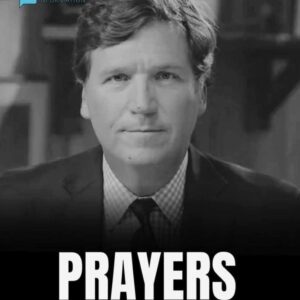In a surprising and candid moment on air, Scott Pelley, the host of 60 Minutes, didn’t mince words as he directly criticized the influence of CBS’s parent company, Paramount, on the show’s editorial independence. The veteran journalist, known for his direct and impactful reporting, raised concerns about how corporate interests, particularly a business deal involving the Trump administration, were affecting the content and the show’s ability to report freely.
The criticism came at the end of a recent 60 Minutes episode, where Pelley praised Bill Owens, the show’s former executive producer, for his long and distinguished career. However, Pelley took a sharp turn in his comments when addressing Owens’ resignation, linking it directly to the pressures placed on the show by its corporate parent.
The Tension Between Journalism and Corporate Interests
Pelley’s remarks stemmed from his discontent with the way Paramount’s corporate priorities were influencing editorial decisions at 60 Minutes. Pelley lamented the loss of journalistic freedom and independence that had once been a hallmark of the show. The controversy reportedly began after Paramount, in pursuit of a major business deal, was said to have begun overseeing content more closely. The deal, which required the approval of the Trump administration, created a conflict of interest, as it affected how certain sensitive topics—such as coverage of Donald Trump and his administration—were reported.
Pelley, a staunch advocate for honest and unflinching journalism, expressed his dismay about how such corporate maneuvers were influencing editorial choices. He shared that Owens, who had been with CBS News for over 40 years, made the difficult decision to resign because he felt the show was losing its editorial independence. According to Pelley, Owens was a steadfast defender of truth, ensuring that controversial stories were handled fairly, accurately, and with the necessary rigor.
In a heartfelt tribute to Owens, Pelley acknowledged his critical role in maintaining the journalistic integrity of 60 Minutes. “Bill was the right person to lead 60 Minutes all along,” Pelley said, underscoring Owens’ unwavering commitment to honest journalism.

Corporate Influence on News Coverage
The heart of Pelley’s critique was the shift in editorial control at 60 Minutes following Paramount’s increased oversight. This shift, Pelley argued, has begun to stifle the show’s ability to pursue stories in the way it has for decades. The pressure to conform to corporate interests, Pelley suggested, has led to a compromise in the independence required to report stories honestly, especially on politically sensitive issues.
While Paramount, as a business entity, has the right to oversee the content of its subsidiary, Pelley’s comments highlight a growing concern in the media industry about the intersection of corporate priorities and journalistic integrity. The tension between these two interests is not new, but it has become more pronounced in recent years as the media landscape continues to evolve. As major media conglomerates expand their reach and diversify their holdings, the influence of corporate interests over news coverage becomes an increasingly controversial issue.
This influence is particularly problematic when it comes to sensitive political topics, such as the Trump administration. Stories that are critical of powerful political figures or cover contentious issues may face heightened scrutiny from corporate leaders who are concerned about potential political repercussions. Pelley’s comments reflect the challenges faced by journalists in maintaining their independence while working within a corporate structure that may prioritize profits and political considerations.
Trump’s Criticism of 60 Minutes
The relationship between Donald Trump and 60 Minutes has long been fraught with tension. The former president has repeatedly accused the program of biased and unfair reporting, particularly during his time in office. Trump’s animosity toward 60 Minutes reached a new level in 2020 when he participated in an interview with the show that he later claimed was “dishonest.” In his social media posts, Trump called the program a “dishonest political operative” and denounced its coverage of his presidency.
Trump’s criticism of 60 Minutes didn’t stop with his allegations of unfair coverage. He also sought legal action against CBS over what he considered to be biased handling of an interview with then-Vice President Kamala Harris. Trump filed a $20 billion lawsuit against CBS, accusing the network of election interference and manipulation of the interview’s narrative.
This lawsuit and Trump’s continued attacks on 60 Minutes underscore the broader tensions between the Trump administration and the mainstream media. Throughout his presidency, Trump frequently targeted news outlets that he felt were critical of him, often labeling them as “fake news” or biased against his administration. His ongoing feud with 60 Minutes is emblematic of his broader campaign to discredit mainstream media and cast doubt on the validity of stories that painted him in a negative light.
A Broader Issue: The Intersection of Journalism and Politics
Pelley’s comments about the pressures placed on 60 Minutes reflect a broader issue in the media industry: the challenge of maintaining journalistic integrity in an era where corporate interests and political pressures are increasingly intertwined. The growing influence of big corporations in the media world has raised concerns about the impartiality of news coverage, particularly in politically sensitive areas.
The situation at 60 Minutes is not unique. Many journalists have voiced concerns about the growing corporate influence on news organizations and the challenges of reporting freely on issues that may be seen as politically contentious. As media companies consolidate and expand their influence, the ability of journalists to independently report on matters of public interest may be compromised.





